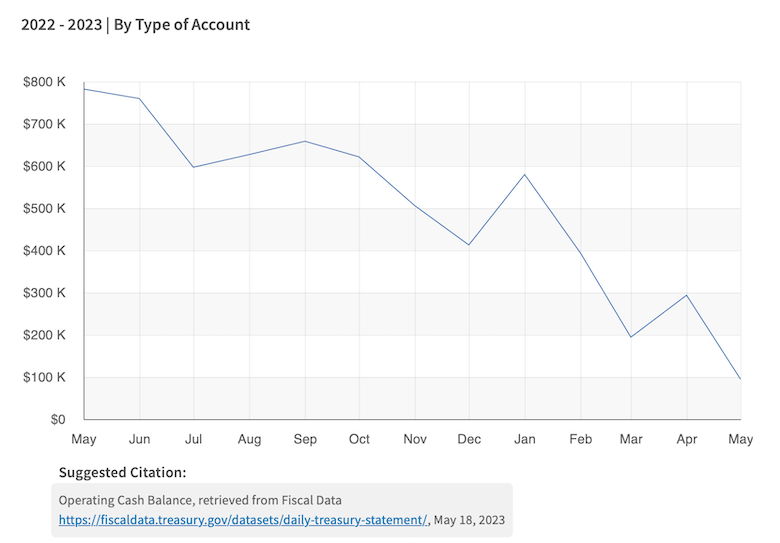As of Thursday’s close, the amount of cash in the government’s account was just $38.837 billion, the lowest it has been since the current debt ceiling crisis began. To get a sense of how small that figure is, it is less than the net worth of 31 individuals in the US, even though the size of US economy is of the order of $27 trillion. Or if one wanted to look at it another way, it is also an indicator of the obscene wealth accumulation in the US that allows individuals to have more than the government has in its cash account.
Treasury secretary Janet Yellen warned some months ago that the government would run out of money sometime around June 1. Skeptics accused her of scaremongering and that the so-called X-date would be much later, maybe even in July or August. It is hard to estimate the exact date since revenues and expenditure vary on a day-by-day basis. But it is beginning to look like she was pretty accurate and yesterday she provided a much firmer date, and that it would be June 5th.
“Based on the most recent available data, we now estimate that Treasury will have insufficient resources to satisfy the government’s obligations if Congress has not raised or suspended the debt limit by June 5,” she wrote in a letter to House Speaker Kevin McCarthy.
Yellen’s new estimate contains more specificity than her earlier guidance. “By June 5,” she said in Friday’s letter, whereas her last two letters to Congress suggested a little more uncertainty — “as early as June 1” was the phrasing she used.
The exact timing of the so-called “X-date,” when the U.S. will not be able to pay its bills, has a degree of uncertainty, as the Treasury Department tracks money coming into and leaving its coffers.
“We will make more than $130 billion of scheduled payments in the first two days of June, including payments to veterans and Social Security and Medicare recipients. These payments will leave Treasury with an extremely low level of resources,” Yellen wrote.
She noted the Treasury Department is scheduled to make an estimated $92 billion in payments and transfers the week of June 5 and said the government would not have adequate resources to satisfy all of its obligations.
So here we are, on the brink again.
It is a crazy way to run the economy.

